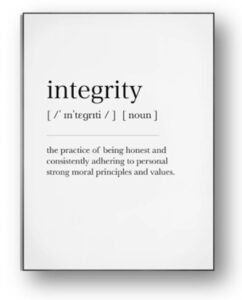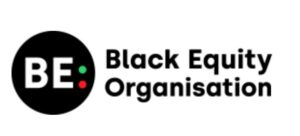Education
Compassionate Leadership: Leading with Integrity
“Integrity is choosing your thoughts and actions based on your values rather than your personal gain”
Jacqueline A. Hinds MA (HRD) CEIC MCEPContributor
What is compassionate leadership?
Well, if you conduct a Google search you will find that there is never just one definition, and my search yielded a good number of definitions and models for compassionate leadership by way of quotes, articles, pillars and, principles that organisations align to their vision, values, and culture.
“Compassionate leadership involves a focus on relationships through careful listening to, understanding, empathising with and supporting other people, enabling those we lead to feel valued, respected and cared for, so they can reach their potential and do their best work.”
~KingsFund~
Growing up in the corporate world, I yearned for such a leader as depicted in the Kings Fund definition and, when I joined the NHS, my first line manager was just that, a caring and compassionate leader.
 Having been appointed in my first line management role, it was imperative that I was supported and developed to succeed in the role I was recruited for. My line manager was a true people manager.
Having been appointed in my first line management role, it was imperative that I was supported and developed to succeed in the role I was recruited for. My line manager was a true people manager.
I can honestly say that the support I received from her helped me to realise my true leadership potential and, for the first time in my career, I was supported by someone who wanted me to aim high and succeed.
You may think this is untrue but, for those of you who know me along my career pathway or have read my book Journey to Empowerment: Tackling the Bullies Within, will understand the trials and tribulations I have faced and accept what I’ve written as my lived experience.
Not only was I supported by my manager in my upskill through leadership development courses, but when she was off to meetings, she always asked me if I would like to accompany her.
To me, this was like music to my ears as it had never happened before in my previous roles within the corporate arena.
What made this experience more meaningful for me was the fact that when I accompanied my manager to these meetings, there was always a seat and place setting there for me, so no one had to shuffle down to make room and accommodate me!
I know you’re thinking this sounds strange and maybe I was mistaken but, there’s no mistake in my experiences. You see, as a Black woman striving to climb the career ladder and pathway to leadership, the road is never easy, and one would have to leave their current organisation to attain a more senior position in another organisation.
Why, I hear you ask.
Well, for some unknown reason the concept of ‘growing your own staff’, was never intended or, the opportunity was never extended to Black employees, even if they were encouraged to apply for suitable in-house roles!
“Be the Leader you would follow,” is a quote I often cite when I’m coaching or training leaders or aspiring leaders, because it will land with each person on an individual level and, in all sense and purposes, they will take-away the elements that resonate with them and their own respective leadership journeys. I see this quote as a deep call to action for those wanting to venture into this career pathway and vocation.
I’ve worked with a very broad range of leaders from the C-Suite right down to team leaders or first-line managers in both the corporate and healthcare arenas, the latter being my most recent employer before I decided to work for myself.
There are so many cases of discrimination in the workplace, the most recent article in the Health
Service Journal (HSJ) states that discrimination is the ‘biggest cause of staff leaving’. My question to anyone who wishes to answer is, if there are models, programmes and information that breaks down the practices and principles of compassionate leadership into digestible chunks, why are people leaving in droves after being discriminated against in the workplace?
I’ve experienced, witnessed, and been drawn into the maelstrom that arises when compassion and leadership are divorced within the workplace. This type of divorce is messy and, more often than not, leads to grievances stating discrimination, bullying, harassment, and their abhorrent relatives!
Funnily enough, most of the information gleaned from my Google search on compassionate leadership, emanated from the NHS; bearing in mind the HSJ article I mentioned previously.
I say this with a raised eyebrow, as I feel what is written (please don’t get me wrong), looks fabulous but, words on paper mean nothing if they are not followed through with affirmative action!
Where is the compassionate leader who walks with integrity when issues arise, and the protocol around policies and procedures to tackle discrimination within the workplace, are blatantly misused and abused by those in positions of power, who consistently gate-keep to ensure ‘safe passage’ for the perpetrator(s) to either move roles or organisations, thus avoiding being held accountable to answer the allegations pertaining to their behaviour and attitude.
Another question I’d like to ask you the reader, what does integrity mean to you as a leader?
I ask this question, because I truly believe that anyone embarking on a leadership journey should start with integrity as the first building block and foundation stone.
 This means that individuals will make the choice of being courageous over comfort and choosing what is right over what others may either say or encourage the steps the individual should take in any given situation. It also means living up to your values rather than just speaking about them. Remember this, by your deeds you shall be known!
This means that individuals will make the choice of being courageous over comfort and choosing what is right over what others may either say or encourage the steps the individual should take in any given situation. It also means living up to your values rather than just speaking about them. Remember this, by your deeds you shall be known!
As a leader, you are the face of the organisation, department, or team and, if the organisation you work for has a global reach, then you are a global leader who is ‘on stage’. Everything that you do (or not do), will have an impact on your role and the organisation you work for.
Many years ago, my youngest brother, who is a psychologist, got really annoyed and scolded our youngest sister who was ‘playing up’ and misbehaving at a family function.
Despite being told on numerous occasions to behave herself and not show the family up with her antics, she carried on regardless, totally ignoring what had been said to her.
It got to the point where he had had enough of her blatant disregard to what he’d said to her previously, so he took her out of the family function and told her that if she continued to misbehave, she will need to change her name or change her character as she was representing the family!
Those words have stuck with me to this very day and really got me thinking about our leaders of today and whether the same ultimatum should be levied upon them within the roles and duty of care as leaders within their respective organisations.
There are many in leadership roles who are not equipped to undertake their roles. This became so apparent when I joined the NHS working in two of the largest merged Trusts at that time in the UK.
Transformation and the role of Emotional Intelligence was borne out of my experiences within the merged NHS organisations, and either being slotted into a role or having the be interviewed for a role in the new organisational structure.
This was a steep learning curve, as there was blatant cronyism taking place, that ensured individuals were appointed to leadership roles they were not suitably qualified or experienced to undertake.
Who are you as a leader?
Remember: ‘Your character is who you are under pressure, not who you are when everything is fine.’

I urge you all to live up to the title of a compassionate leader and, if this is not something you can pledge to uphold, I suggest that you either
”Change Your Name or, Change Your Character.
Jacqueline A. Hinds MA (HRD) CEIC MCEPContributor















